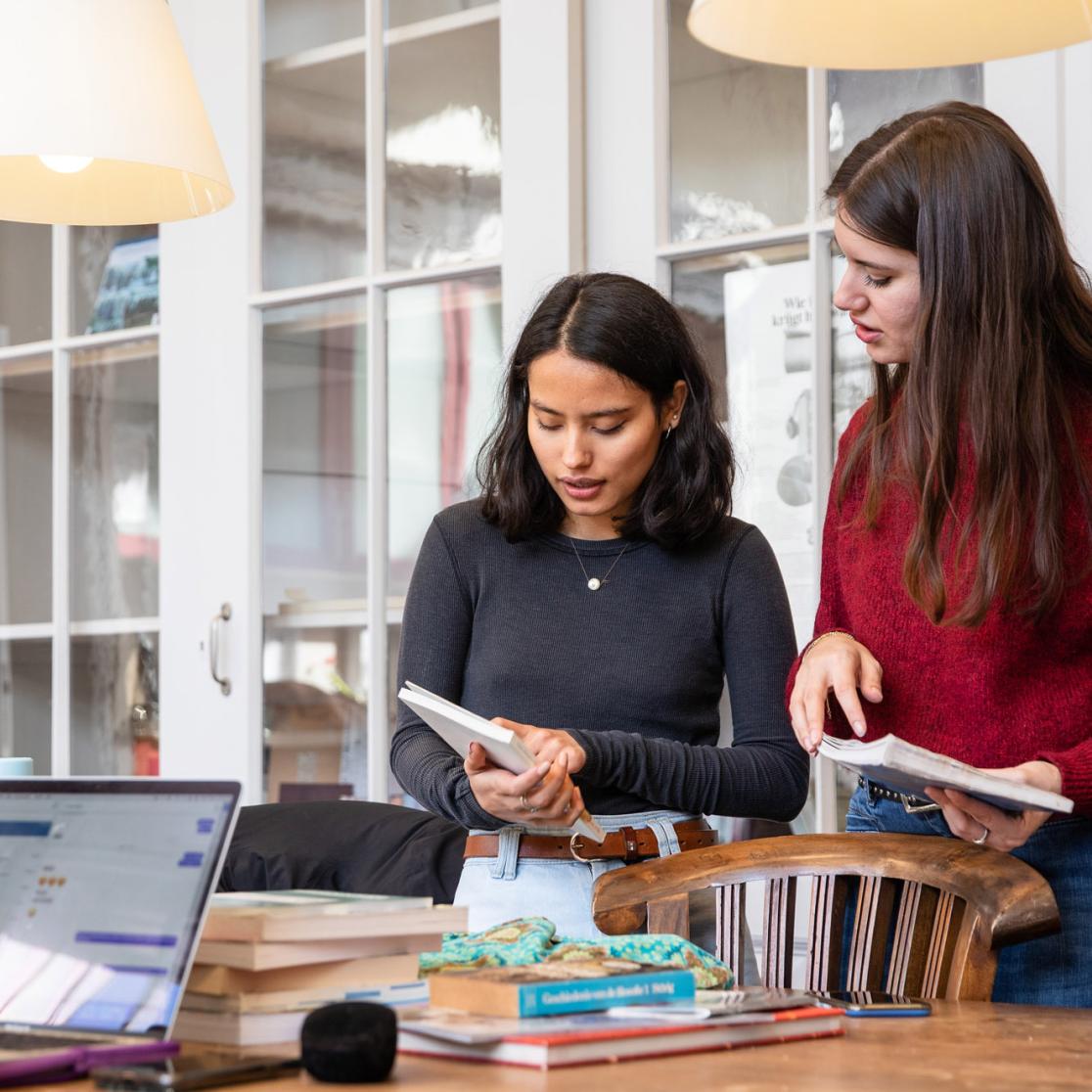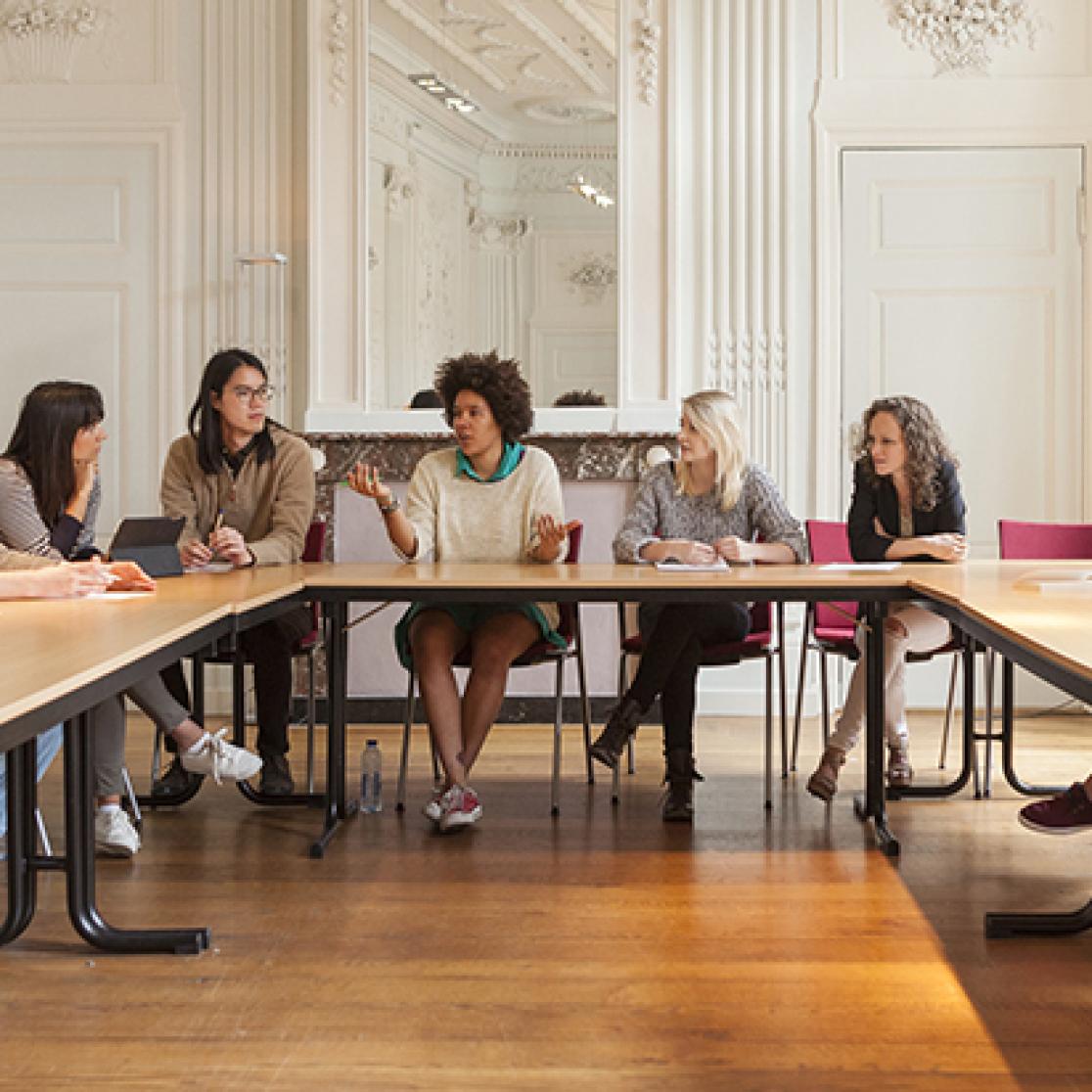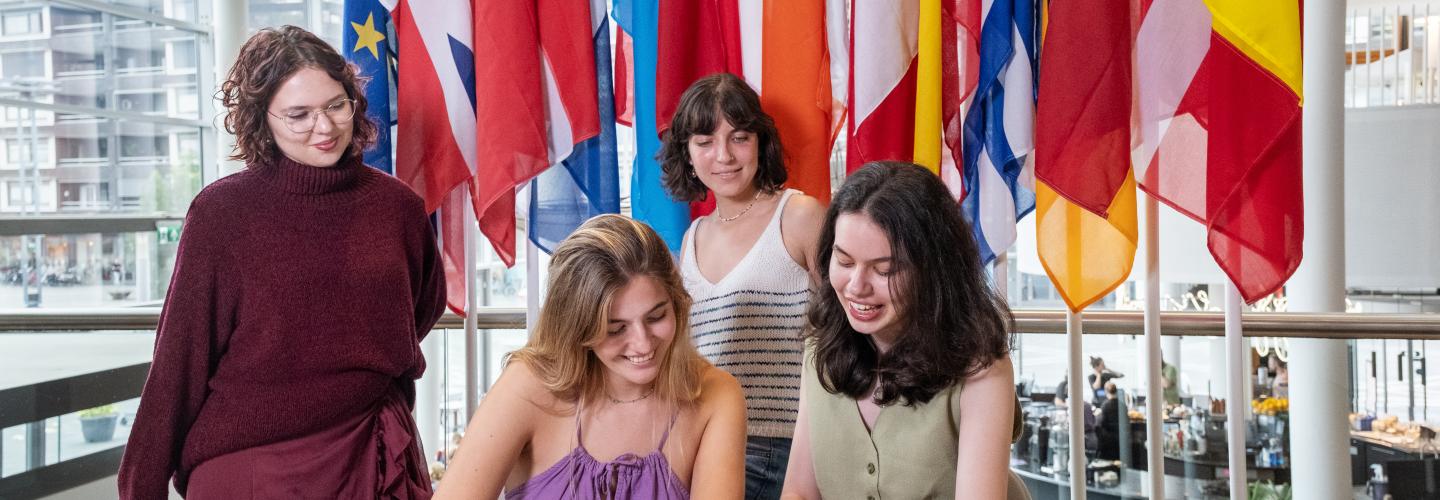Why this programme
The bachelor's programme in European Studies originated from one core idea: It is impossible to understand modern-day Europe and European integration from the perspective of only one discipline. Take the war in Ukraine, or the challenges presented by climate change as examples. These crises can never be fully understood from an economic, political or legal perspective alone. In order to understand what is happening, and to grasp how the European Union, European states, companies, and citizens respond to these challenges, we also need to analyse the historical developments and different political and cultural backgrounds of the actors trying to manage the crises.
Societal and political challenges can only be understood in the broader socio-cultural contexts. Politics, law or economics alone are not enough to solve the European 'puzzle'. Therefore, European Studies adopts a multidisciplinary approach, combining insights and methods from political science, history, international relations, law, economics, philosophy, and sociology.
For this programme you'll need:
- A broad interest in European culture, history, and politics;
- An interest in our multidisciplinary approach;
- Self-discipline and excellent time-management skills;
- A critical mind with a broad academic orientation;
- Good knowledge of the English language (we advise CEFR C1);
- To enjoy interacting with students from different nationalities;
- To be attracted to the small-scale and interactive character of the teaching system.

The big questions of Europe and the EU
In the European Studies programme, you will explore the answers to questions such as:
- What is Europe and how do we define it?
- How has Europe’s history shaped the continent?
- What impact does the integration process have on Europe’s cultural diversity?
- How has the disappearance of internal European borders changed border regions?
- How do European institutions and national governments interact?
- How does European legislation affect our daily lives?
- Does the elected European Parliament have enough power to exercise democratic control over Europe’s governance?
- What role can a united Europe play in international politics?
Bachelor Theses Conference
Each year, we organise a Bachelor Theses Conference to offer students an extra opportunity to receive feedback on their final papers.
Small-groups = big advantages
As with many Maastricht University programmes, European Studies is taught using Problem-Based Learning. You will do a lot of your work in small tutorial groups of no more than 15 students. Together you will work on abstract and concrete ‘problems’ taken from real-world situations. Learning takes place in an active, constructive and collaborative manner. Though intensive and much more interactive than traditional lessons, the benefits of this kind of interaction with fellow students are evident, as it has one of the highest knowledge retention rates of any educational method.
Professional skills
Next to your courses, you will take skills trainings that will help you develop research, language and professional skills such as:
- Academic research & writing;
- Presentation skills;
- Legislation interpretation;
- International negotiations.
PBL and the tutorial group
The questions that you'll be discussing in your tutorial group are often complex and the answers to them may be too. However, by exploring these types of questions in close consultation with the academic staff and other students, you'll develop an understanding of Europe that goes far beyond what you would learn by attending a series of traditional lectures.
Where the international classroom comes alive
Maastricht University has focused in recent years on further developing its International Classroom, where our differences become our strengths. From day 1, you will be challenged with competing viewpoints and experiences as you interact with staff and students from all over Europe and the world. Every day your preconceptions and worldview will be enhanced by this interaction, bringing you closer to the programme’s goal of teaching students not only facts and concepts but also international accessibility and understanding. From the programme's subject matter and the international composition of the classroom to the programme’s promotion of multilingualism and its emphasis on studying abroad, European Studies will immerse you in an international, multicultural environment.
In year three you can spend a semester abroad, but you could also stay in Maastricht or elsewhere in the Netherlands to do an internship or take courses. Studying at another university (or in another programme) or undertaking an internship offers you the change of scenery and a chance to get a better insight into future master's programmes and career options. It also allows you to apply the acquired knowledge and skills, as well as to gain new insights.
Studying abroad offers the opportunity to study certain issues in more depth, in a setting that may differ from FASoS (a different country, different teaching philosophy, etc.). FASoS has agreements with more than 100 European and non-European partner universities, where you can take courses in several fields, including European Studies, political science, international relations and journalism.
Foreign languages
In the second year, you will have the possibility to choose a modern language other than English to study for 16 weeks as part of the skills trajectory. In the third year, you can choose to study another foreign language for 16 weeks as part of the electives.

MaRBLe excellence programme
Through the Maastricht Research Based Learning programme, MaRBLe for short, we offer talented third-year bachelor’s students the opportunity to conduct their own research project. You will be guided by experienced academic staff who will help you further develop your critical thinking and research skills.This will help prepare you for a career in scientific research or research positions in business.
Honours+ programme
University wide Honours+ component
The Honours+ Programme consists of three types of activities. Students attend workshops to develop professional skills; help organize a series of DIY lectures; and co-author contributions to the digital magazine Excellium.
If you complete the Honours Programme successfully you will receive a special Honours Programme Certificate, in addition to your diploma, when you graduate. ECTS credits are not awarded.
FASoS Honours component
The faculty of Arts and Social Sciences offers its most ambitious bachelor’s students the opportunity to take part in the Honours Programme.
You do not need to contact the Faculty if you belong to the top 4 to 5 per cent of students of the first year (based on average grade) who passed all their first-year courses and skills trainings at the first attempt: you will be invited to apply.
Honours programme students are given the freedom to study academic topics in depth. The programme consists of various components, from which you choose two. For example, you could undertake a small-scale, comprehensive six-week project under the guidance of a faculty professor. This could be a small research project or consist of reading and discussing several books. You could also participate in faculty research, choose an individual assignment such as writing a paper, or take a second minor at the Faculty.
UM and FASoS Campus Tour
Welcome to the FASoS campus tour! In this video, one of our student ambassadors will take you on a journey through our faculty, the inner city, and all the important UM buildings. If you’d like to explore further, we also offer campus tours during our Open Days, Experience Days, and Introduction Days. Enjoy the tour!
